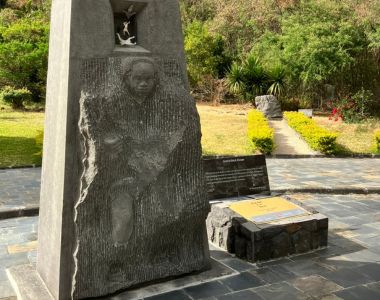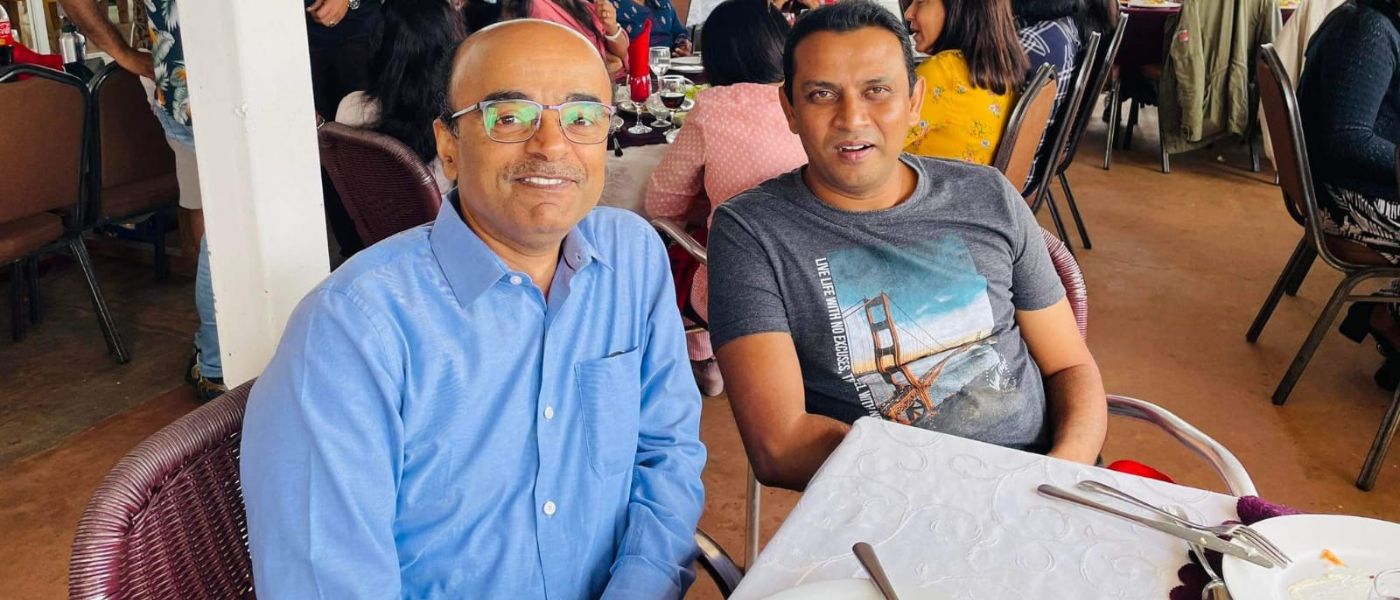Each year, thousands of people participate in the U.S. Department of State’s Fulbright programs, prestigious appointments through which students, scholars, educators and other professionals come together to engage in a global exchange of knowledge. A variety of Fulbright programs are offered, each with their own aims and time requirements. In recognition of International Education Week, celebrated Nov. 13–17, The Daily will share the stories of some of Case Western Reserve University’s most recent Fulbright recipients each day this week.
Rakesh Niraj, associate professor of marketing design and innovation at Weatherhead School of Management, recently spent 10 months abroad in Mauritius, a small island country in the Indian Ocean. With a total population of 1.3 million people, the African country is much smaller than other places Niraj has lived. Before coming to the United States (with a population of 331.9 million), Niraj lived in India, which has a population of 1.4 billion.

Building on his work in the Master of Business Analytics and Intelligence program at CWRU, Niraj spent his time in Mauritius working with faculty at the University of Technology, Mauritius’ School of Business, Management and Finance to help establish a similar program and conduct research.
He also taught an undergraduate class, with some of his students in Mauritius becoming research assistants on his work.
Read more about his experiences.
Answers have been lightly edited for clarity and length.
1. What motivated you to apply for a Fulbright award, and how did you choose your specific research or teaching destination?
As my sabbatical leave from the university approached, I planned to visit somewhere interesting. One reason Mauritius was attractive is because it is an interesting case in Africa, being one of the most prosperous countries there despite having a past full of slavery, colonization and getting independence in the late 1960s.
Another reason was my fascination with the country ever since I read in my childhood about the country having received thousands of indentured laborers from my part of my country of origin (India). It turns out about 70% of the population of Mauritius traces its ancestry to India. Finally, if you have to be somewhere in the world, a tropical island in the Indian ocean is one of the better places to be.
2. How does receiving a Fulbright award align with your research or teaching goals, and what impact do you anticipate it having on your academic career?
It allowed me to get exposure to a different research population and context thereby opening my eyes to different perspectives. I also got a chance to observe a university and its operations in a different country from within.
At the same time, my experience in launching a business analytics master’s program [at Weatherhead] was useful in getting started on launching a similar program there as well. I also got a couple of collaborators from a different part of the world, with whom I have a couple of research projects already ongoing.
I expect the research done during my Fulbright visit to Mauritius will lead to one or two publications and a conference presentation. All these align with my research program and CWRU’s goal of internationalization.
3. Were there any challenges in adapting to a new academic and cultural environment, and how did you address them?
The environment was somewhat different but English being the primary language of higher education in Mauritius helped out a lot. Also, my knowledge of their fourth language (Hindi/Bhojpuri) made my day-to-day life quite smooth. I had gone there imagining I would pick up some Creole, but as English and Hindi helped me communicate with almost 90% of the population I came in contact with, that is one thing that I did not need.
The culture there is quite eclectic and I enjoyed participating in local celebrations of various kinds and going all across the country to meet people. I had told myself I would not say no, and this helped me just connect to people in a deeper way than otherwise possible. I probably invited myself to multiple places but this was a culture willing to open up if you were willing to open up.
4. What advice do you have for other faculty members who are considering applying for Fulbright awards in the future?

You should apply for Fulbright awards. They are your ticket to a different country and allow long-term living and immersion in the culture in a very different way. There are hundreds of such awards in all the corners of the world.
These awards are very competitive, however, so apply to the places you are truly interested in and let your special interest (like cultural or research connection) show in the application process.

